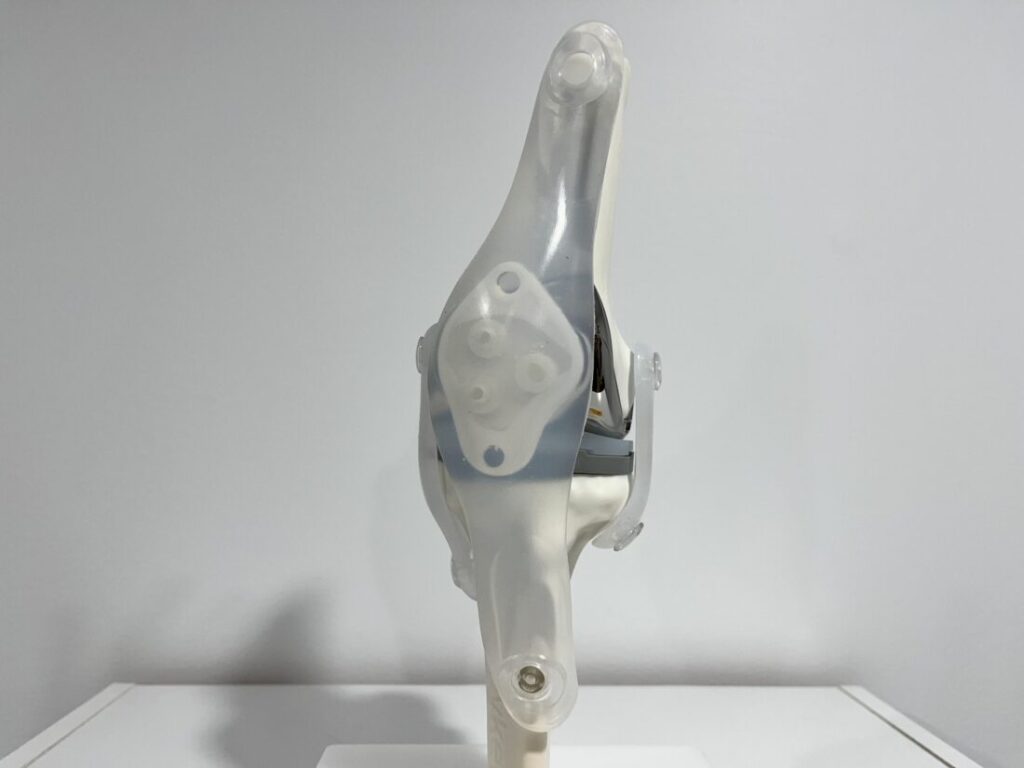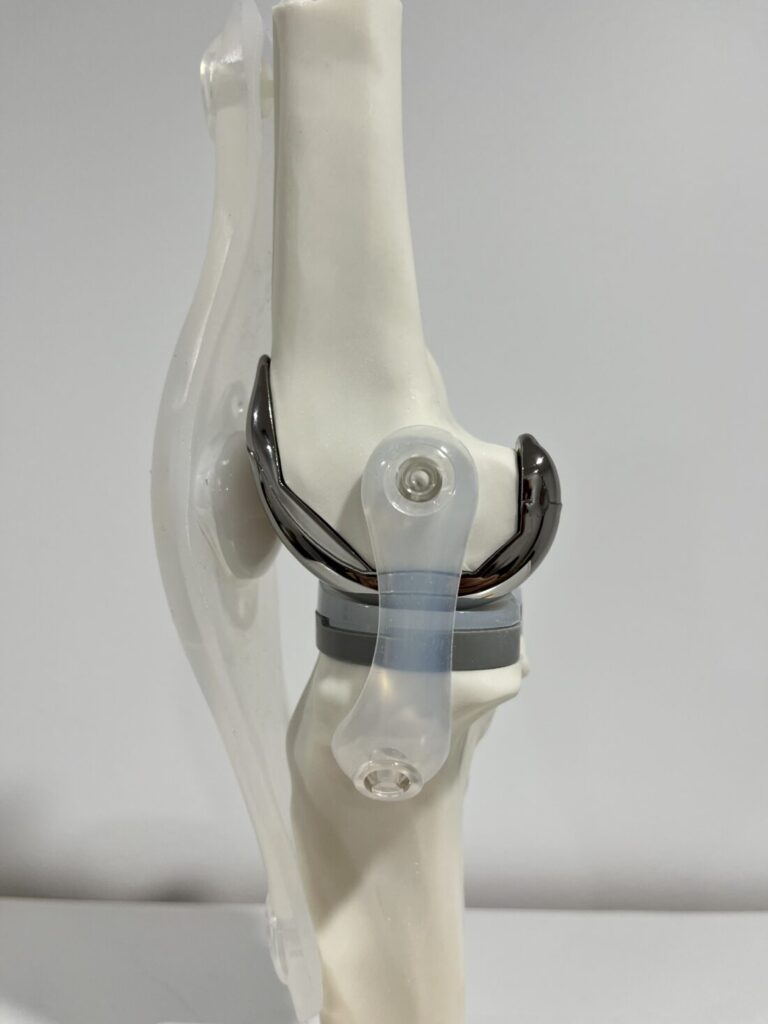Knee Replacement
Patients offered joint replacement surgery often have severe pain and dysfunction affecting the ability to cope with day-to-day activities. Most patients will have failed a period of non-operative management including physiotherapy, strengthening, medications and weight control.
Knee replacement surgery is designed as a lifestyle operation intended to reduce pain and improve function in a worn out joint. The results of knee replacements are very good with 85-90% of patients reporting good to excellent results however it is important to tailor your treatment to your age, medical history, reported symptoms and radiographic (X-RAY, CT, MRI) features of arthritis.
Below is a link to a self-reported scoring system to determine the severity of your arthritis. While not the only factor to consider in determining your appropriateness for joint replacement surgery, it is validated and helpful to quantify your symptoms and potential improvement from joint replacement surgery.
More information: http://www.orthopaedicscore.com/scorepages/oxford_knee_score.html
What is a knee replacement?
A knee replacement is a resurfacing type of operation. A skin incision is made in the front of your knee. The kneecap and muscles are slid out of the way to access the joint surfaces.
The worn-out bone is removed and metal components are then placed on the end of the femur (thigh bone) and top of the tibia (shin bone) with a plastic cushion in between.
The back of the kneecap is sometimes also replaced with plastic if there is evidence of worn-out cartilage.
The new joint fits in amongst your own ligaments that run along the sides of your knee and utilises these ligaments for stability and to function properly
Computer navigation or robotic assistance is used to align the components accurately based on your unique anatomy. Dr Cohen aims to align the components to recreate the shape of your own knee before it wore out with arthritis. This hopefully allows your knee to be well balanced, minimising the need for ligament release, helping your new knee to work better.
The wound is closed with dissolving stitches and dressings are applied.


How long will the knee replacement last?
- For most people the knee replacement would last more than 15 years, and it may last as long as 20 or 25 years or more. There is, however, a small risk of failure at any time after knee replacement surgery for various reasons. These will be discussed in detail at your consultation.
- Dr Cohen takes certain steps to improve the chances of your joint replacement lasting a long time, including:
- choosing a prosthesis with proven results based on The Australian National Joint Replacement Registry Results
- using computer navigation/robotics and careful technique during surgery.
Ready to take the next step?
Click on the 'GET IN TOUCH' button and provide your details,
and we'll reach out to arrange an appointment as soon as possible.
